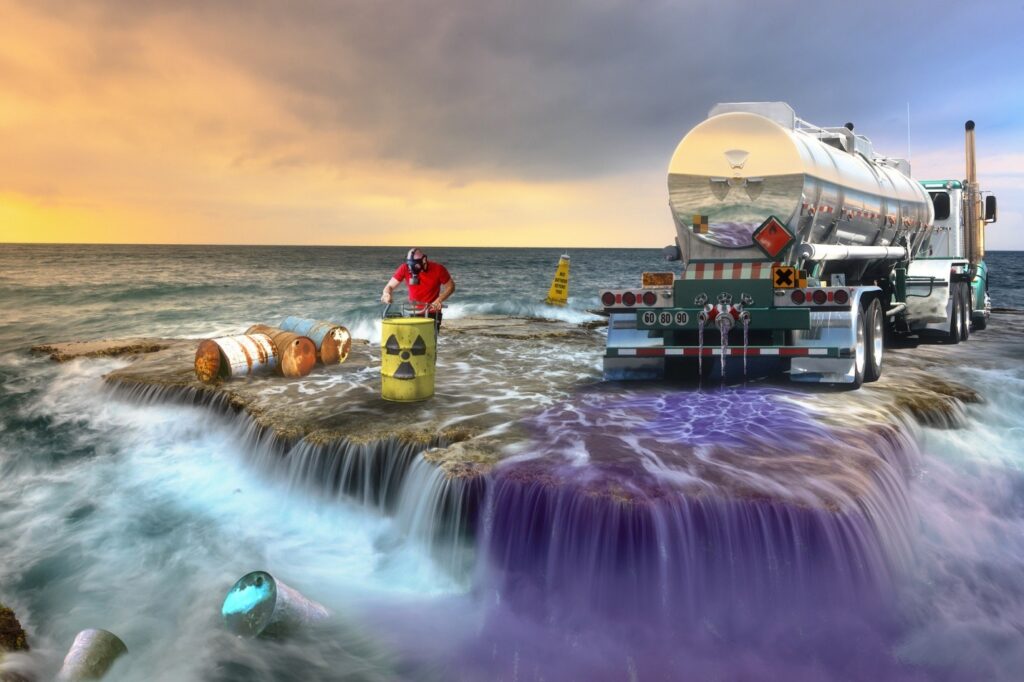Some Ideas on Reclaim Waste You Need To Know
Some Ideas on Reclaim Waste You Need To Know
Blog Article
The 45-Second Trick For Reclaim Waste
Table of ContentsThe Single Strategy To Use For Reclaim WasteA Biased View of Reclaim WasteAll about Reclaim WasteThe Basic Principles Of Reclaim Waste A Biased View of Reclaim Waste
Explore the kinds, events, and types of liquid waste. Domestic sewage waste describes the waste and products from a household sewage-disposal tank. This kind of waste is developed by humans in residences, institutions, and various other buildings. This only consists of septic containers that have a drain area. The appropriate management and disposal of residential sewage waste need liquid waste to be transferred to a sewer treatment plant where the appropriate techniques and equipment are related to detoxify and deal with waste.
Business waste typically consists of potential dangers, such as combustible materials or a blend of fluid and solid waste products, and requires an extra innovative and comprehensive disposal process. The disposal of business waste typically includes the filtering of waste prior to transport to make certain secure and proper disposal. Industrial waste is produced from by-products and runoff of commercial processes and production.
This kind of waste can not utilize the same sewage monitoring transportation or procedures as septic or commercial liquids. The hazardous waste management procedure needs the examination and testing of fluid waste prior to it undergoes the disposal process (industrial wastewater treatment). Overflow waste is the fluid waste that originates from drainage and excess stormwater in extremely populated areas or cities
Overflow waste can cause contamination and flooding otherwise handled correctly. Discover more about drain cleaning and waste management. Guaranteeing proper waste monitoring can avoid disasters and decrease ecological damage. Both people in residential settings and experts in commercial or manufacturing industries can take advantage of understanding the processes and regulations of fluid waste monitoring.
The 9-Second Trick For Reclaim Waste
Contact PROS Providers today to discover our waste management and disposal services and the proper ways to look after the fluid waste you create.
(https://pxhere.com/en/photographer-me/4429814)Do you know what takes place to your water when you draw the plug, purge the toilet or drain the washing machine? No? Well, it deserves recognizing. This so-called 'wastewater' is not only a vital source however, after therapy, will be launched to our land, waterways or the ocean. Utilized water from commodes, showers, bathrooms, kitchen sinks, washings and industrial processes is called wastewater.

water used to cool down machinery or clean plant and tools). Stormwater, a form of wastewater, is drainage that flows from agricultural and city areas such as roofings, parks, gardens, roads, courses and gutters into stormwater drains pipes, after rain. Stormwater moves untreated directly to neighborhood creeks or rivers, ultimately getting to the sea.
Facts About Reclaim Waste Uncovered
In Queensland, a lot of wastewater is dealt with at sewer therapy plants. Wastewater is transferred from domestic or industrial sites via a system of sewers and pump stations, recognized as sewerage reticulation, to a sewer treatment plant. City governments build, maintain and run most sewer therapy plants. Operators are certified under the Environmental Security Act 1994 to discharge treated wastewater at an acceptable environmental criterion into waterways.
The Department of Natural Resources recommends city governments concerning handling, operating and keeping sewage systems and treatment plants. In unsewered locations, neighborhood governments may call for owners to set up specific or family sewage therapy systems to deal with domestic discover this info here wastewater from commodes, cooking areas, restrooms and washings. The Department of Natural Resources authorizes making use of household systems when they are verified to be efficient.
In some new neighborhoods, treatment of some stormwater to get rid of trash, sand and gravel has actually begun making use of gross pollutant catches. Wastewater treatment takes place in four phases: Removes strong issue.
Wastewater after that moves into huge storage tanks where solids resolve and are gotten rid of as sludge. Oil and residue are skimmed from the surface area. Utilizes little living organisms referred to as micro-organisms to break down and get rid of staying liquified wastes and great fragments. Micro-organisms and wastes are integrated in the sludge. Gets rid of nitrogen and phosphorus nutrients that could cause algal flowers in our waterways and intimidate aquatic life.
Little Known Facts About Reclaim Waste.
Nutrient removal is not readily available in all sewage treatment plants because it requires expensive specialised tools. It is becoming more common in Queensland. Clear liquid effluent created after treatment may still contain disease-causing micro-organisms. If this effluent is released right into rivers such as rivers or the sea, the micro-organisms will ultimately die out.

This generally means wastewater needs to be dealt with or impurities eliminated before it can be released to rivers. Many wastewater streams right into the sewage system. Under the Act, local governments carry out authorizations and licences for environmentally relevant tasks (ERAs) including wastewater releases that might have a local effect. The department carries out approvals and licences to Ages involving wastewater launches that could have a regional or statewide influence.
Things about Reclaim Waste
Tracking supplies accurate info regarding water high quality and can verify that permit conditions are being satisfied. The info acquired through tracking supplies the basis for making water top quality choices.
Report this page